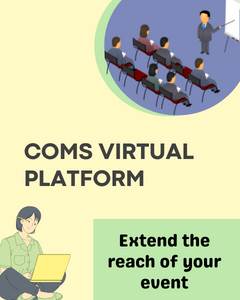Conferences > Physics > Mathematical Physics
Select a location
Belgium (1) - Brazil (3) - Bulgaria (1) - Canada (7) - China (1) - France (5) - Germany (6) - Greece (1) - Italy (1) - Japan (1) - Morocco (1) - Spain (1) - Switzerland (1) - United Kingdom (5) - United States (4)
ALL COUNTRIES (39)
1
WE Heraeus Workshop — EDMs 2026: Complementary Experiments and Theory Connections
01 Mar 2026 - 06 Mar 2026 • Les Houches, France
Event listing ID:
1687736
2
YITP-IAS (Kyushu Univ.) workshop: Interfaces & Symmetry
02 Mar 2026 - 06 Mar 2026 • Yukawa Institute for Theoretical Physics, Kyoto University, Japan
Event listing ID:
1685329
Event website:
3
Localization, Delocalization, and Diffusion in Disordered Systems
08 Mar 2026 - 13 Mar 2026 • Banff, Alberta, Canada
Event listing ID:
1668524
Event website:
4
Riemann 200: Mathematics and physics
16 Mar 2026 - 20 Mar 2026 • Hanover, Germany
Event listing ID:
1687673
Event website:
5
AMS Special Session on Scalar Curvature and Topology
28 Mar 2026 - 29 Mar 2026 • Savannah, Georgia, United States
Event listing ID:
1682604
6
Non-perturbative renormalization in fundamental and effective theories
30 Mar 2026 - 03 Apr 2026 • Trento, Italy
Event listing ID:
1690549
Event website:
7
OOEW12 — Physics and automorphic L-functions: gravity, conformal field theory and number theory
08 Apr 2026 - 10 Apr 2026 • Cambridge, United Kingdom
Event listing ID:
1684894
Event website:
8
Geometric Analysis on Asymptotically Hyperbolic Manifolds
12 Apr 2026 - 17 Apr 2026 • Banff, Alberta, Canada
Event listing ID:
1668585
Event website:
9
WE Heraeus Physics School — The Non-Perturbative Functional Renormalization Group and its Applications
13 Apr 2026 - 24 Apr 2026 • Les Houches, France
Event listing ID:
1687868
10
Mathematical aspects of the physics with non-self-adjoint operators
20 Apr 2026 - 24 Apr 2026 • Marseille, France
Event listing ID:
1687676
Event website:
11
ICMMP26 — 3rd International Conference on Mathematical Methods in Physics
27 Apr 2026 - 30 Apr 2026 • Marrakech, Morocco
Event listing ID:
1676866
Event website:
12
Spectral theory and mathematical physics (in honor of Barry Simon)
27 Apr 2026 - 01 May 2026 • Pasadena CA, United States
Event listing ID:
1687699
Event website:
13
Mathematical Analysis of Plasmas
03 May 2026 - 17 May 2026 • Banff, Alberta, Canada
Event listing ID:
1668581
Event website:
14
Large N Matrix Models and Emergent Geometry
24 May 2026 - 29 May 2026 • Banff, Alberta, Canada
Event listing ID:
1668699
Event website:
15
Recent developments in mathematical physics and related fields (in honor of Wolfgang Spitzer)
27 May 2026 - 29 May 2026 • Hagen, Germany
Event listing ID:
1687645
16
New challenges for Dirac operators
01 Jun 2026 - 05 Jun 2026 • Madrid, Spain
Event listing ID:
1687613
Event website:
17
Seminar and Workshop — Emergent Gauge theories: Bridging Quantum Matter, Quantum Information, and Fundamental Interactions
01 Jun 2026 - 19 Jun 2026 • Dresden, Germany
Event listing ID:
1683348
Event website:
18
High Dimensional Problems for Statistical Methods in Fundamental Physics Data Analyses
07 Jun 2026 - 12 Jun 2026 • Banff, Alberta, Canada
Event listing ID:
1668686
Event website:
19
International School-Workshop — Quantum Rings: A Playground for Quantum Mechanical Paradigm and Topological Physics
08 Jun 2026 - 12 Jun 2026 • Natal, Brazil
Event listing ID:
1683542
20
Workshop — Integrable systems: regularity, non-commutativity and random matrix theory
15 Jun 2026 - 19 Jun 2026 • ICMS, Bayes Centre, Edinburgh , United Kingdom
Event listing ID:
1670177
21
GCS26: PARIS — Symmetries 26, school and conference
15 Jun 2026 - 04 Jul 2026 • IHP, Paris, France
Event listing ID:
1685131
Event website:
22
Walkshop on mathematical physics 2026
22 Jun 2026 - 26 Jun 2026 • Kassel, Germany
23
Workshop — String Math 2026
22 Jun 2026 - 26 Jun 2026 • ICMS, Bayes Centre, Edinburgh , United Kingdom
Event listing ID:
1670178
Event website:
24
PASCOS 2026 — 31st International Symposium on Particles, Strings, and Cosmology
22 Jun 2026 - 26 Jun 2026 • Sheffield, United Kingdom
Event listing ID:
1685176
Event website:
25
IWNT'43 — Forty Third International Workshop on Nuclear Theory
28 Jun 2026 - 04 Jul 2026 • Borovets, Rila Mountains, Bulgaria
Event listing ID:
1697394
Event website:
26
A Grothendieck type theorem for the quantum projective line
28 Jun 2026 - 12 Jul 2026 • Banff, Alberta, Canada
Event listing ID:
1668692
Event website:
27
Gauged Linear Sigma Models
29 Jun 2026 - 03 Jul 2026 • Mainz, Germany
Event listing ID:
1685101
Event website:
28
15th AIMS conference
06 Jul 2026 - 10 Jul 2026 • Athens, Greece
Event listing ID:
1687510
Event website:
29
NC2W03 — New connections between physics and number theory
13 Jul 2026 - 17 Jul 2026 • Cambridge, United Kingdom
Event listing ID:
1684987
Event website:
30
Analysis of Partial Differential Equations arising in Physics
13 Jul 2026 - 17 Jul 2026 • New Brunswick, NJ, United States
Event listing ID:
1687523
Event website:
31
A Panorama of Quantum Topology - Recent Progress in Quantum Algebra, Low-Dimensional Topology, and Mathematical Physics
19 Jul 2026 - 24 Jul 2026 • Banff, Alberta, Canada
Event listing ID:
1668722
Event website:
32
School on Solving Driven-Open Quantum Systems: theory and experiments
27 Jul 2026 - 07 Aug 2026 • São Paulo, Brazil
Event listing ID:
1680647
Event website:
33
Les Houches Summer School — Quantum theory on all scales
03 Aug 2026 - 28 Aug 2026 • Les Houches, France
Event listing ID:
1687503
34
V Patricio Letelier School on Mathematical Physics
17 Aug 2026 - 28 Aug 2026 • São Paulo, Brazil
Event listing ID:
1680635
Event website:
35
Modave 2026 — 22nd Modave Summer School in Mathematical Physics
31 Aug 2026 - 04 Sep 2026 • Modave, Belgium
Event listing ID:
1685135
Event website:
36
WE-Heraeus Summer School for Graduate Students — Foundations and New Methods of Theoretical Physics
31 Aug 2026 - 11 Sep 2026 • Bayrischzell, Germany
Event listing ID:
1688033
37
Mirror Symmetry, Calabi-Yau Threefolds, and Connections to Physics
28 Sep 2026 - 02 Oct 2026 • Providence, United States
Event listing ID:
1680319
38
IOCSYM2026 — The 1st International Online Conference on Symmetry - Recent Advances in Mathematics and Physics
20 Oct 2026 - 22 Oct 2026 • Basel (virtual event), Switzerland
Event listing ID:
1686103
Event website:
39
ICMMP2026 — The 1st International Conference on Modern Mathematical Physics
30 Oct 2026 - 03 Nov 2026 • Hangzhou, China
Event listing ID:
1686146
Event website:
Conference-Service.com offers, as part of its business activities, a directory of upcoming scientific and technical meetings. The calendar is published for the convenience of conference participants and we strive to support conference organisers who need to publish their upcoming events. Although great care is being taken to ensure the correctness of all entries, we cannot accept any liability that may arise from the presence, absence or incorrectness of any particular information on this website. Always check with the meeting organiser before making arrangements to participate in an event!
Last updated: 22 February 2026




